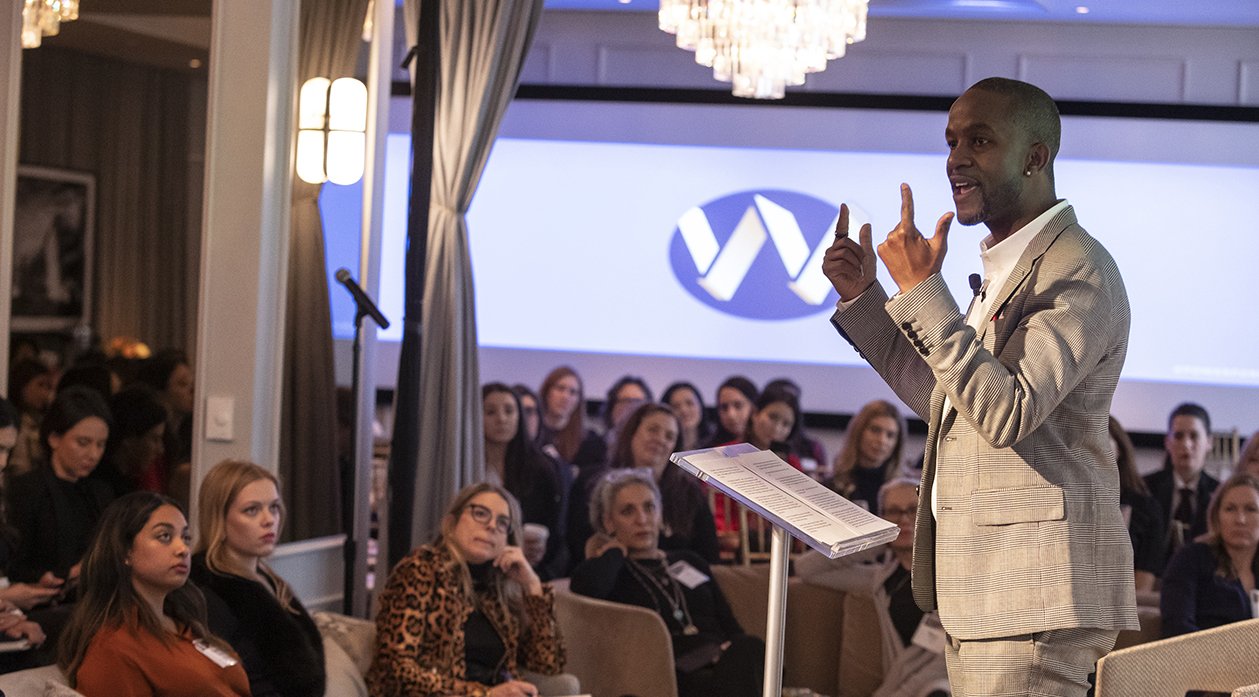Despite the fact that more and more companies claim to be doubling down on gender diversity efforts, inequality in corporate leadership persists.
Only five percent of CEOs at major corporations in the U.S. are women. And according to research published by the Institute for Women’s Policy, college-educated millennial women who work full-time are projected to lose over $1 million by age 60 due to the gender pay gap.
It’s clear more women need to be hired, mentored and promoted to the highest ranks of corporate life. But what they don’t need are allies, according to diversity expert and former NFL player Wade Davis.
“You don’t want men as your allies,” said Davis, now the vice president of inclusion for product at Netflix, at this week’s Women and Worth: Power Forward Summit in New York City. “You want us as your solidarity partners. And there’s a difference.”

Being an ally, Davis said, “means that I’m doing something for you—not realizing that it also benefits me.” But when men get honest about structural discrimination, own their failings publicly and listen to the women they work with, the calculation changes.
“We learn that ending gender inequality benefits us, too,” Wade said. “Therefore, I’m not your ally when it benefits me. We’re working in solidarity, because our liberations are tied together, and that means this work becomes deeply, deeply personal.”
Davis, who was the NFL’s first diversity and inclusion consultant, says the responsibility of removing structural barriers lies with men. “The key thing is there’s nothing more you need to do…I want you to hear that,” Davis told the crowd of mostly women. “Women don’t need our help. You are already powerful, talented, smart and capable. It’s the barriers that are getting in your way. It’s the barriers that require you to do the extra work, the extra labor.”

Men, he said, “have to take ownership of our thoughts, our actions and our behavior—publicly. That’s why on all of my social media there’s one word that always shows up: feminist. I deeply try to embody what it means to be a feminist, but I do that publicly, so that people can hold me accountable for my actions. That’s the luxury of what it means to be a man: I get to take the bullets first.”
In a separate panel discussion, Mita Mallick, the head of diversity & inclusion and cross-cultural marketing at Unilever, echoed Davis’s sentiment about allies.
“Being an ally is just not good enough,” Mallick wrote in an open letter addressed to men. “For the world to work to truly change for women, we need men to be agents of change. We need you to be advocates.”
Davis concluded his speech with a quote from the writer James Baldwin: “If they come for you in the morning, they’re coming for me at night.”
“That’s what it means to fight against any form of oppression or discrimination,” Davis said. “I’ve got to move away from this idea that I’m your ally. I am your solidarity partner. We are working in solidarity to end all of this.”







